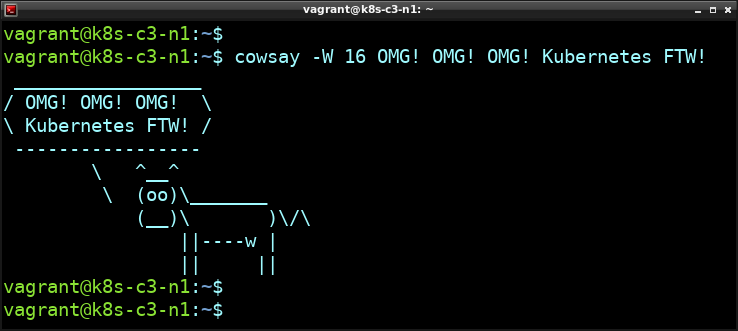Ubuntu 19:10: systemd-resolved blocks port 53 and thereby preventing any service using port 53 (like dnsmasq) from starting
Jan 29 03:31:58 ubuntupxe02 dnsmasq[2386]: dnsmasq: failed to create listening socket for port 53: Address already in use
Jan 29 03:31:58 ubuntupxe02 dnsmasq[2386]: failed to create listening socket for port 53: Address already in use
Jan 29 03:31:58 ubuntupxe02 dnsmasq[2386]: FAILED to start up
Jan 29 03:31:58 ubuntupxe02 systemd[1]: dnsmasq.service: Control process exited, code=exited, status=2/INVALIDARGUMENT
Jan 29 03:31:58 ubuntupxe02 systemd[1]: dnsmasq.service: Failed with result 'exit-code'.
Jan 29 03:31:58 ubuntupxe02 systemd[1]: Failed to start dnsmasq - A lightweight DHCP and caching DNS server.
Verify that the port is used by systemd-resolve
jonas@ubuntupxe02:~$ sudo lsof -i -P -n | grep LIST
systemd-r 784 systemd-resolve 13u IPv4 19378 0t0 TCP 127.0.0.53:53 (LISTEN)
sshd 859 root 3u IPv4 23918 0t0 TCP *:22 (LISTEN)
sshd 859 root 4u IPv6 23920 0t0 TCP *:22 (LISTEN)
apache2 1705 root 4u IPv6 27900 0t0 TCP *:80 (LISTEN)
apache2 1706 www-data 4u IPv6 27900 0t0 TCP *:80 (LISTEN)
apache2 1707 www-data 4u IPv6 27900 0t0 TCP *:80 (LISTEN)
Stop the service
jonas@ubuntupxe02:~$ sudo systemctl stop systemd-resolved
Edit the systemd-resolved config file
jonas@ubuntupxe02:~$ sudo vi /etc/systemd/resolved.conf
jonas@ubuntupxe02:~$ cat !$ | grep DNS
cat /etc/systemd/resolved.conf | grep DNS
DNS=8.8.8.8
FallbackDNS=
MulticastDNS=no
DNSSEC=no
DNSOverTLS=no
DNSStubListener=no
jonas@ubuntupxe02:~$
Create symlink to /etc/resolv.conf
jonas@ubuntupxe02:~$ sudo ln -sf /run/systemd/resolve/resolv.conf /etc/resolv.conf
Start systemd-resolved service
jonas@ubuntupxe02:~$ sudo systemctl start systemd-resolved
Start dnsmasq
jonas@ubuntupxe02:~$ sudo systemctl start dnsmasq
jonas@ubuntupxe02:~$
jonas@ubuntupxe02:~$ sudo systemctl status dnsmasq
● dnsmasq.service - dnsmasq - A lightweight DHCP and caching DNS server
Loaded: loaded (/lib/systemd/system/dnsmasq.service; enabled; vendor preset: enabled)
Active: active (running) since Wed 2020-01-29 03:56:12 UTC; 6s ago
Process: 1312 ExecStartPre=/usr/sbin/dnsmasq --test (code=exited, status=0/SUCCESS)
Process: 1314 ExecStart=/etc/init.d/dnsmasq systemd-exec (code=exited, status=0/SUCCESS)
Verify that dnsmasq is now the user of port 53
jonas@ubuntupxe02:~$ sudo lsof -i -P -n | grep LISTEN
sshd 823 root 3u IPv4 23016 0t0 TCP *:22 (LISTEN)
sshd 823 root 4u IPv6 23018 0t0 TCP *:22 (LISTEN)
apache2 874 root 4u IPv6 22454 0t0 TCP *:80 (LISTEN)
apache2 875 www-data 4u IPv6 22454 0t0 TCP *:80 (LISTEN)
apache2 876 www-data 4u IPv6 22454 0t0 TCP *:80 (LISTEN)
dnsmasq 1331 dnsmasq 5u IPv4 28097 0t0 TCP *:53 (LISTEN)
dnsmasq 1331 dnsmasq 7u IPv6 28099 0t0 TCP *:53 (LISTEN)
Kudos to Nitin Gurbani for the solution


